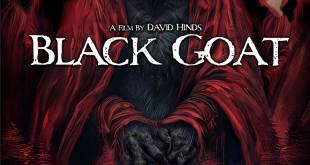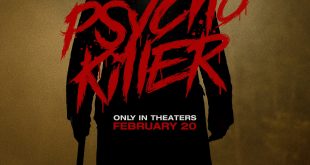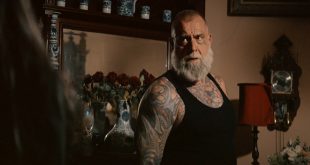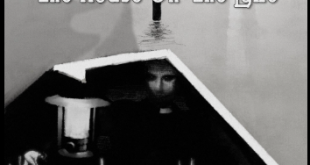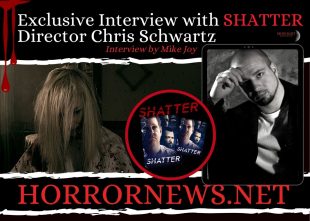
What made you want to get involved in the film industry?
This is already going to start sounding like a therapy session…haha. It definitely stems from my childhood. When I was about 10 years old, my dad had purchased a home video camera and he let me use it one day. They were doing construction in my neighborhood at the time, which required underground blasting and I remember taking the camera out to film it. It was my first shot, and I caught the giant eruption of dirt from the dynamite blast on film. When I got home, everyone sat around the TV and watched what I had filmed that day in person. When the emotion from what I experienced live transferred to the people who watched what I recorded, I was hooked. At that point, I wanted to show people all the crazy ideas I saw in my head, since I have always had a propensity for creating stories. I wanted to see if other people would “feel” the same emotions I felt when I first saw a new idea in my mind.
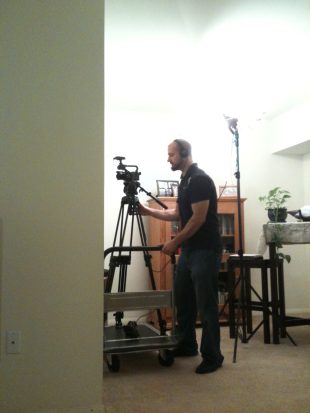
From script–to–screen, how close did SHATTER come to its original vision?
As with any film endeavor on any budget, you normally have to make a lot of concessions right off the bat. Of course, with a film being shot on a “beer money” micro-budget means you often have to make even more. However, as Red Glass Film’s 5th feature, we have a lot of experience with guerrilla filmmaking. We wrote the script in a way that made use of both actors and locations that were already pre-existing, along with most of the props we already had from previous films. That mindset really lent itself nicely to being able to very closely match the original script, where it was mainly just a few special effects scenes that changed a bit simply based on them not working out as planned.
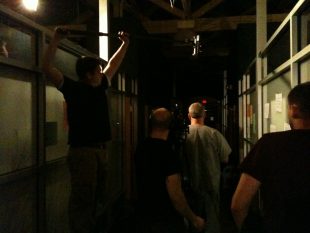
What was your favorite day on set and why?
My favorite day was probably shooting the “infamous” kitchen scene, when David meets his deceased mother, and resolves a lifetime of psychological pain. I enjoyed this day the most because we had the most actors on-set and also the most crew ever…at 4 people! Even through the hardships of getting everything dialed in and shot in 1 night, everyone was having a blast on-set, and that is really what it is all about for us. In the end, it turned out to be such a beautiful and memorable scene in the film and was a fan-favorite after every screening.
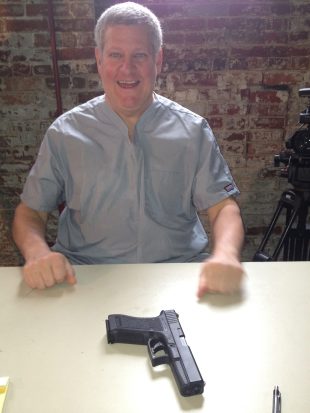
What scene did you enjoy directing the most?
The “stakeout” scene in the police car was probably the most enjoyable scene to direct, simply because I had the least amount of input. Sounds odd, but Red Glass Films operates more like a film club where people of different talents and backgrounds just hang out and make movies for fun. It has always been about giving back and giving people a chance to try something new. Most of our actors are not classically trained with many having little or no past experience at all. I always try to encourage actors to take a lot of latitude in playing the character as they see fit, because I want them to enjoy the process and also learn from it. So, to see these 2 actors in this particular scene really play off of each other, get into their own head as well as their characters, and nail the intensity of the scene in the way that they did was really awesome. For me, just watching it play out from behind the camera was awesome, because I could feel the emotion in each take. This gave me the opportunity to focus on lighting, cinematography, and sound, since I have to both set-up and monitor all of that on-set as well. Everything worked out so synchronously and this turned out to be my favorite scene personally.
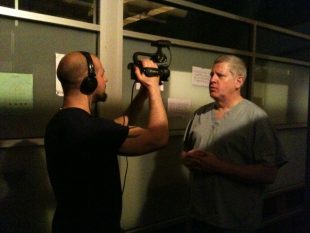
What is the biggest obstacle you faced while making SHATTER?
Making SHATTER was in fact the biggest obstacle in itself. Haha. I have never made a film where so many things went wrong, but I’ve also never made a film that required this many people in this many locations, on this small of a budget. It took a lot of creativity and a lot of favors, and in the end, it was just one nightmare after another….but we never gave up. Well, I never gave up at least. I guess along the way a lot of people gave up on ever seeing this film to the finale, but I think most people underestimate how much work a feature film actually takes. In the end though, I would say the biggest obstacle was post-production. During production, you’re only seeing clips and pieces of scenes here and there. But once you get into post, you start seeing how everything works…or doesn’t work together. And of course by then it’s usually too late to reshoot anything, and you only have your own editing skills to rely on in post. So if the audio turns out to be too echoey or the lighting seems too harsh once you apply color grading, you are mostly stuck with it.
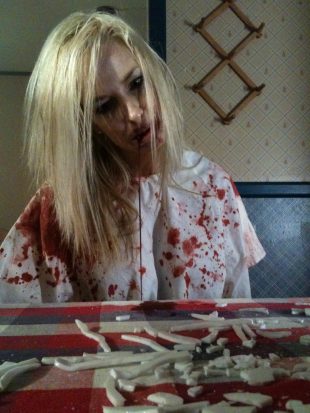
What was your proudest moment during production?
I feel like the last day of principle photography was probably my proudest moment….just knowing that the film hit it’s first major milestone and that we were actually going to finish it at this point, no matter what got in the way in the years to come. I think at that point, everyone was still excited and the passion and love for the project, though strained, was still strong. There was such momentum and I think many of the actors had finally done something that they never thought would ever happen in their lifetime – act in a feature film. I am really proud of everyone for the effort and time they put into this film and fighting for something that they probably never imagined they would see out there in the world.
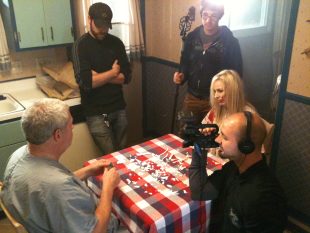
How do you get a film to stand out in the crowd in today’s landscape?
That’s still quite the conundrum for me because I’m always working against the grain of what I would consider a film for “normal” people. I try to keep my ideas from blending in with the almost mathematical progression of a typical storyline. But it’s hard to break the mold when people have more and more conditioned expectations…and that’s the mainstream formula. There used to be this huge movement of people who felt that mainstream films had no originality or simply wanted to support the nobody’s who are just getting started, but I think a lot of that has changed with the introduction of streaming and the vast quantities of original content being produced. I’ve seen ideas turned into films on most streaming sites that I never thought I would see out of the “mega studio” mill. On the other side, mainstream viewers keep raising their expectations because film production can now be done relatively cheaply. Add on the exponential growth of VOD where the line between a mega studio film and VOD becomes so skewed that you just expect a certain quality standard now. It’s also hard to get people to watch a film that was shot on entry-level equipment because technology is continuing to outpace entry-level gear in just a few years. All I can do now is ask a few awesome people to give it an honest review, and if it’s got any merit, the film will stand on its own and people will start to talk about it and what can be accomplished now with basically nothing but drive and determination.
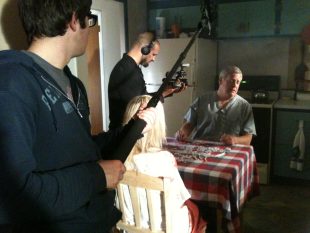
What other filmmakers inspire you to do what you do?
I’m definitely inspired by the twisted minds of David Lynch, Darren Aronofsky and David Cronenberg – as you can probably tell, and as SHATTER implies, I love to explore the fringes of what people are expecting with one toe dipped in the realm of surrealism. There’s also quite a few shoutouts to David Lynch in SHATTER and good luck to anyone who thinks they found them all! I also love George Romero, as my zombie obsession runs deep, Guillermo del Toro, as I love his visionary style, and M. Night Shyamalan as his films really broke the mold for psychological horror, which is my favorite horror sub-genre.
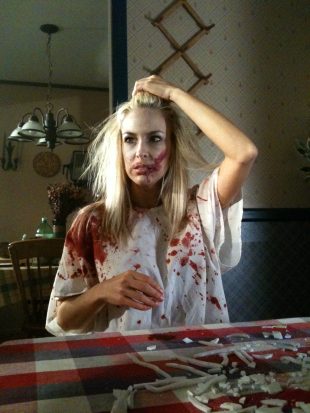
What is your favorite horror decade and why?
That’s a tough one! There’s definitely a nostalgia to the 80’s horror classics that I grew up with, but I feel like I’m seeing a rebirth of that legendary energy in the 2010’s with directors like Ari Aster, Fede Alvarez, Jordan Peele, Robert Eggers, and the return of Richard Stanley. It’ll be interesting to see what the next generation say in terms of the classics. For me, every decade has its own merits and all of them have some killer films. I probably have a new favorite in my top 10 horror films of all time every year.
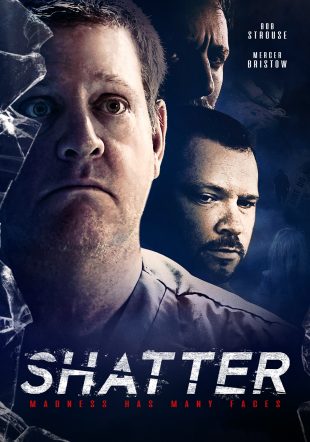
What is the next step in your filmmaking career?
I have only dreams at this point. I’ve been making short and feature films for a long time and haven’t ever had much success or a strong chance to network within the film community. Making films is both time consuming and expensive, so life keeps getting in the way. There’s definitely a chance that I’ll pull it together and start on another film project, depending on SHATTER’s progression. However, I hope that next time I am able to obtain more funding as I don’t know if I could pull off another round of guerrilla filmmaking anymore. It’s just brutal.
 Horror News | HNN Official Site | Horror Movies,Trailers, Reviews
Horror News | HNN Official Site | Horror Movies,Trailers, Reviews

